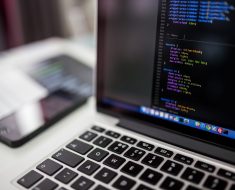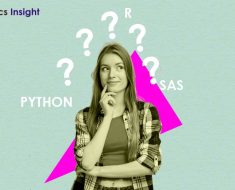Elon Musk has filed a lawsuit against OpenAI and its CEO, Sam Altman, alleging that Altman’s moves driven by commercial interests have led to the violation of the company’s Founding Agreement for developing artificial general intelligence or AGI for the “benefit of humanity” and not for individual interests, according to a report by the Verge. Musk, in his lawsuit, has sought an order requiring OpenAI to adhere to the Founding Agreement of making its research and technology available to the public.
What’s the Founding Agreement about?
According to the lawsuit, filed on February 29, the Founding Agreement signed between Altman, Musk, and Greg Brockman, co-founder of OpenAI, in 2015, laid out two primary conditions that OpenAI:
“(a) would be a non-profit developing AGI for the benefit of humanity, not for a for-profit company seeking to maximize shareholder profits; and
(b) would be open-source, balancing only countervailing safety considerations, and would not keep its technology closed and secret for proprietary commercial reasons.”
OpenAI was founded in response to or rather as a competitor to Google/DeepMind – a research group focused on studying deep learning algorithms—for building AGI, which is said to human-like intelligence for performing varied tasks.
“The Founding Agreement was also memorialized, among other places, in OpenAI, Inc.’s December 8, 2015 Certificate of Incorporation, which affirmed that its ‘resulting technology will benefit the public and the corporation will seek to open source technology for the public benefit when applicable. The corporation is not organized for the private gain of any person’,” the lawsuit stated.
Musk’s allegations against OpenAI:
1. Licensing GPT-4: Musk has claimed that by keeping GPT-4’s internal design a secret—known only to OpenAI and Microsoft allegedly—Altman has departed from OpenAI’s “original mission and historical practice” of open-sourcing its technology. OpenAI launched its generational language model GPT-4, which is said to be “more reliable, creative, and able to handle much more nuanced instructions than GPT-3.5”, in March 2023. Read more about GPT-4 here.
By licensing GPT-4, and failing to disclose to the public, among other things, details on GPT-4’s architecture, hardware, training method, and training computation, and further by erecting a “paywall” between the public and GPT-4, requiring per-token payment for usage, Musk stated that Altman and others have breached the agreement that OpenAI’s technology would be open-source.
Further, the complaint also alleged that this is being done to advance Microsoft and OpenAI CEO’s commercial interests and that GPT-4 is now a “de factor Microsoft proprietary algorithm”, despite being developed by OpenAI using contributions from Musk and others intended for benefitting the public.
2. Limitations to Microsoft’s rights over OpenAI’s technology:
Musk expressed opposition to Microsoft’s growing hold over OpenAI’s technological advancements. With respect to GPT-4, the Tesla founder has stated that owing to its capabilities, GPT-4 is an AGI algorithm and that it is outside the scope of Microsoft’s exclusive license with OpenAI. In September 2020, OpenAI entered into an agreement with Microsoft, exclusively licensing to Microsoft its GPT-3 language model. As per the terms, the Microsoft license only applied to OpenAI’s pre-AGI technology, and not to AGI. Further, it was up to OpenAI, Inc.’s non-profit Board, not Microsoft, to determine when OpenAI attained AGI.
3. Revamp of the Board in November 2023:
In November 2023, the OpenAI Board unexpectedly fired Sam Altman and removed Brockman as Chair of the board. Both returned to the company in a couple of days, and a new board was established consisting of Bret Taylor (Chair), Larry Summers, and Adam D’Angelo. Musk has alleged that the Board members were “hand-picked by Mr. Altman and blessed by Microsoft”.
“The new Board members lack substantial AI expertise and, on information and belief, are ill equipped by design to make an independent determination of whether and when OpenAI has attained AGI—and hence when it has developed an algorithm that is outside the scope of Microsoft’s license,” the lawsuit claimed. Musk has claimed that permitting Microsoft, a publicly traded for-profit corporation, to occupy a seat in OpenAI, Inc’s Board of Directors was in violation of the Founding Agreement.
Further, Musk stated that OpenAI, Inc. has transformed into a closed-source de facto subsidiary of the world’s largest tech company, Microsoft. He alleged:
“Under its new Board, it is not just developing but is actually refining an AGI to maximize profits for Microsoft, rather than for the benefit of humanity. Its technology, including GPT-4, is closed-source primarily to serve the proprietary commercial interests of Microsoft.”
In addition to compliance to the terms of the Founding Agreement, Musk has also sought a Court’s order prohibiting Altman, and Brockman from utilising OpenAI, Inc. or its assets for the financial benefit of the individual Defendants, Microsoft, or any other particular person or entity.
Further, he also sought a judicial determination of whether GPT-4 and OpenAI’s upcoming AI model Q* (Q Star) constitutes AGI, which will mean that both these models are outside the scope of OpenAI’s license to Microsoft.
Also Read:
STAY ON TOP OF TECH NEWS: Our daily newsletter with the top story of the day from MediaNama, delivered to your inbox before 9 AM. Click here to sign up today!





